
Freakonomics Radio
Freakonomics co-author Stephen J. Dubner uncovers the hidden side of everything. Why is it safer to fly in an airplane than drive a car? How do we decide whom to marry? Why is the media so full of bad news? Also: things you never knew you wanted to know about wolves, bananas, pollution, search engines, and the quirks of human behavior.
To get every show in the Freakonomics Radio Network without ads and a monthly bonus episode of Freakonomics Radio, start a free trial for SiriusXM Podcasts+ on Apple Podcasts or by visiting siriusxm.com/podcastsplus.
To get every show in the Freakonomics Radio Network without ads and a monthly bonus episode of Freakonomics Radio, start a free trial for SiriusXM Podcasts+ on Apple Podcasts or by visiting siriusxm.com/podcastsplus.
Episode library (104)
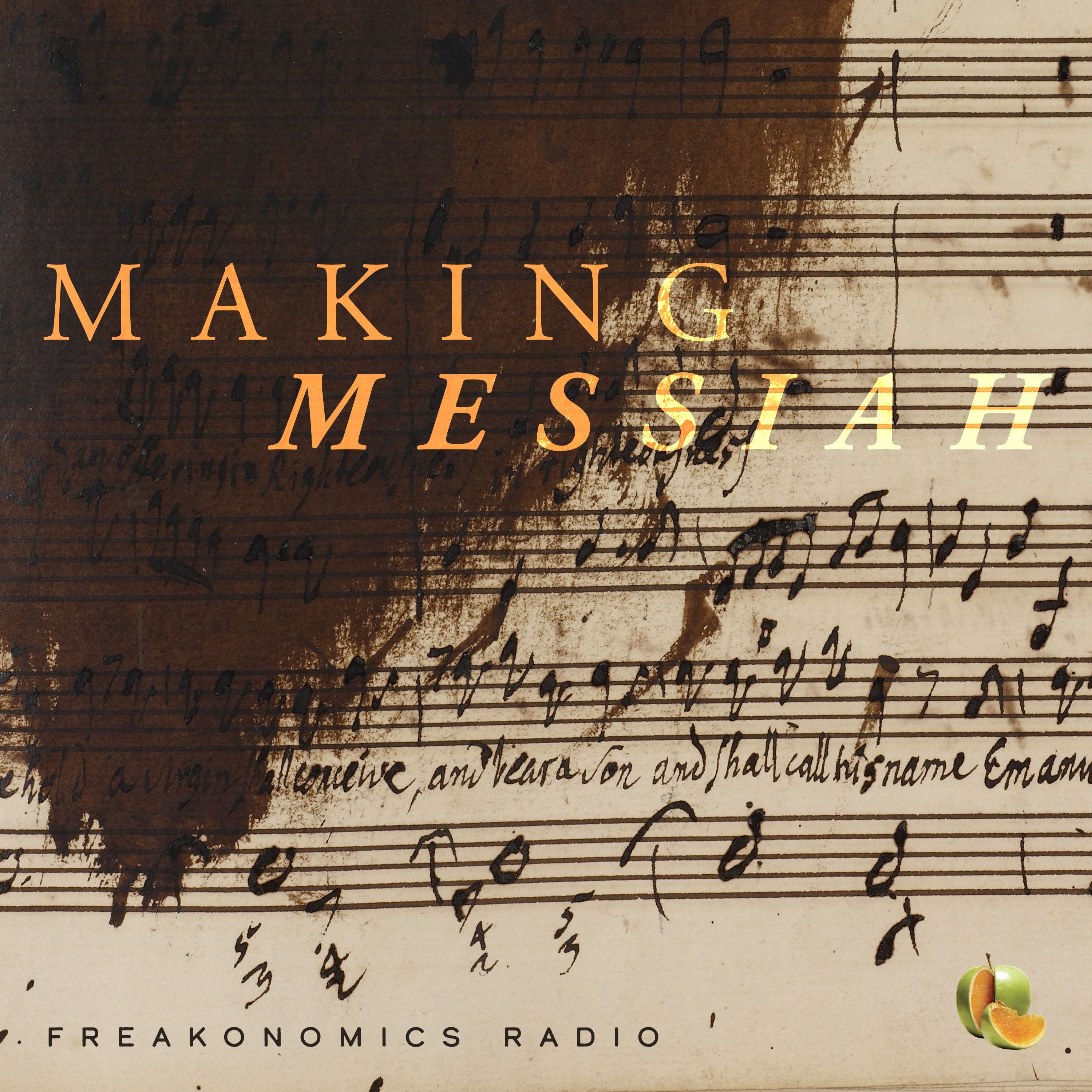
657. Whose “Messiah” Is It Anyway?
All sorts of people have put their mark on “Messiah,” and it has been a hit for nearly 300 years. How can a single piece of music thrive in so many settings? You could say it’s because Handel really...

Who Pays for “Messiah”?
In the 18th century, Handel relied on royal patronage. Today, it’s donors like Gary Parr who keep the music playing. In this bonus episode of our “Making ‘Messiah’” series, Parr breaks down the...

656. How Handel Got His Mojo Back
When he wrote “Messiah” (in 24 days), Handel was past his prime and nearly broke. One night in Dublin changed all that. (Part two of “Making ‘Messiah.'”)
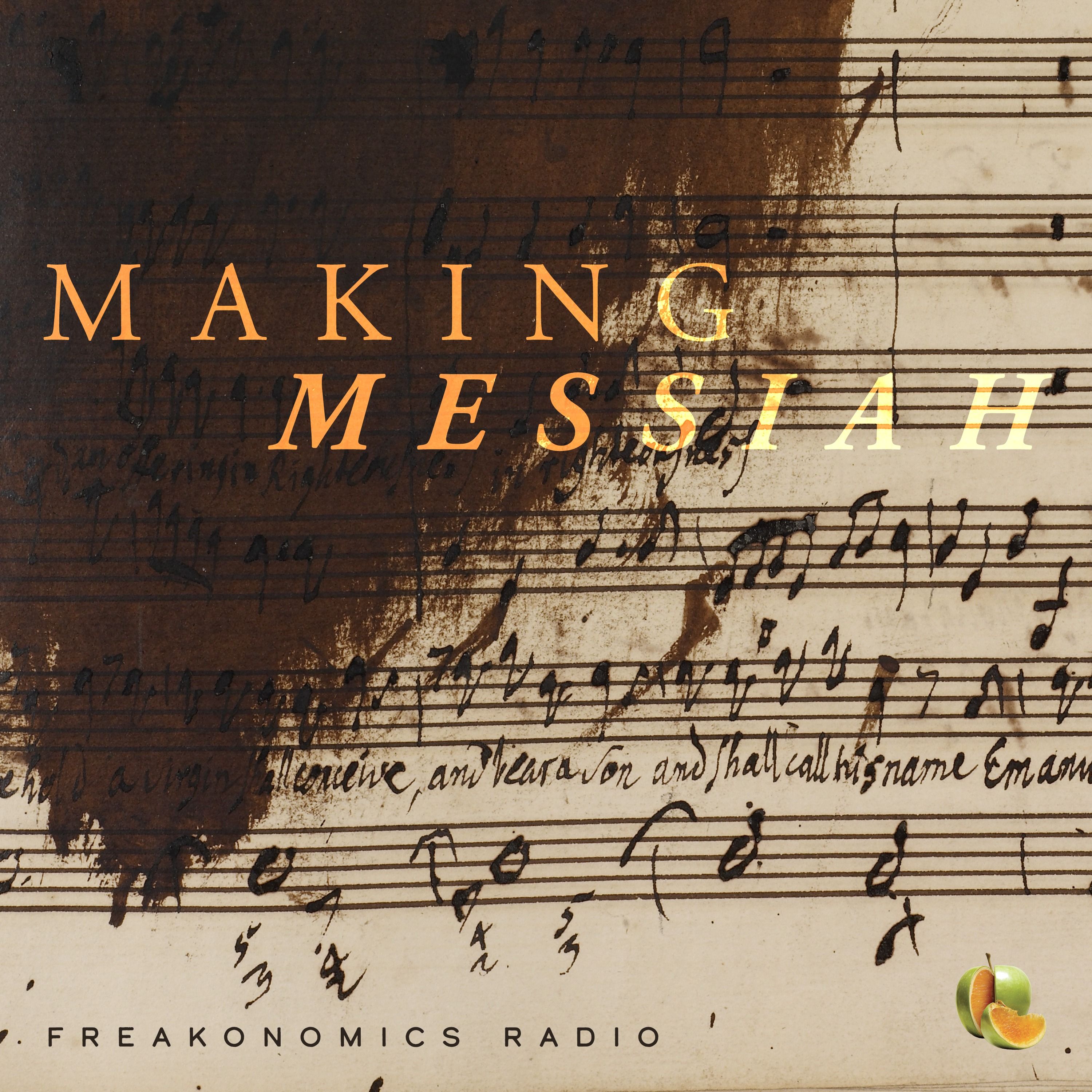
“The Greatest Piece of Participatory Art Ever Created”
Why does an 18th-century Christian oratorio lend such comfort to our own turbulent times? Stephen Dubner sets out for Dublin to tell the story of George Frideric Handel’s “Messiah.” (Part one of...
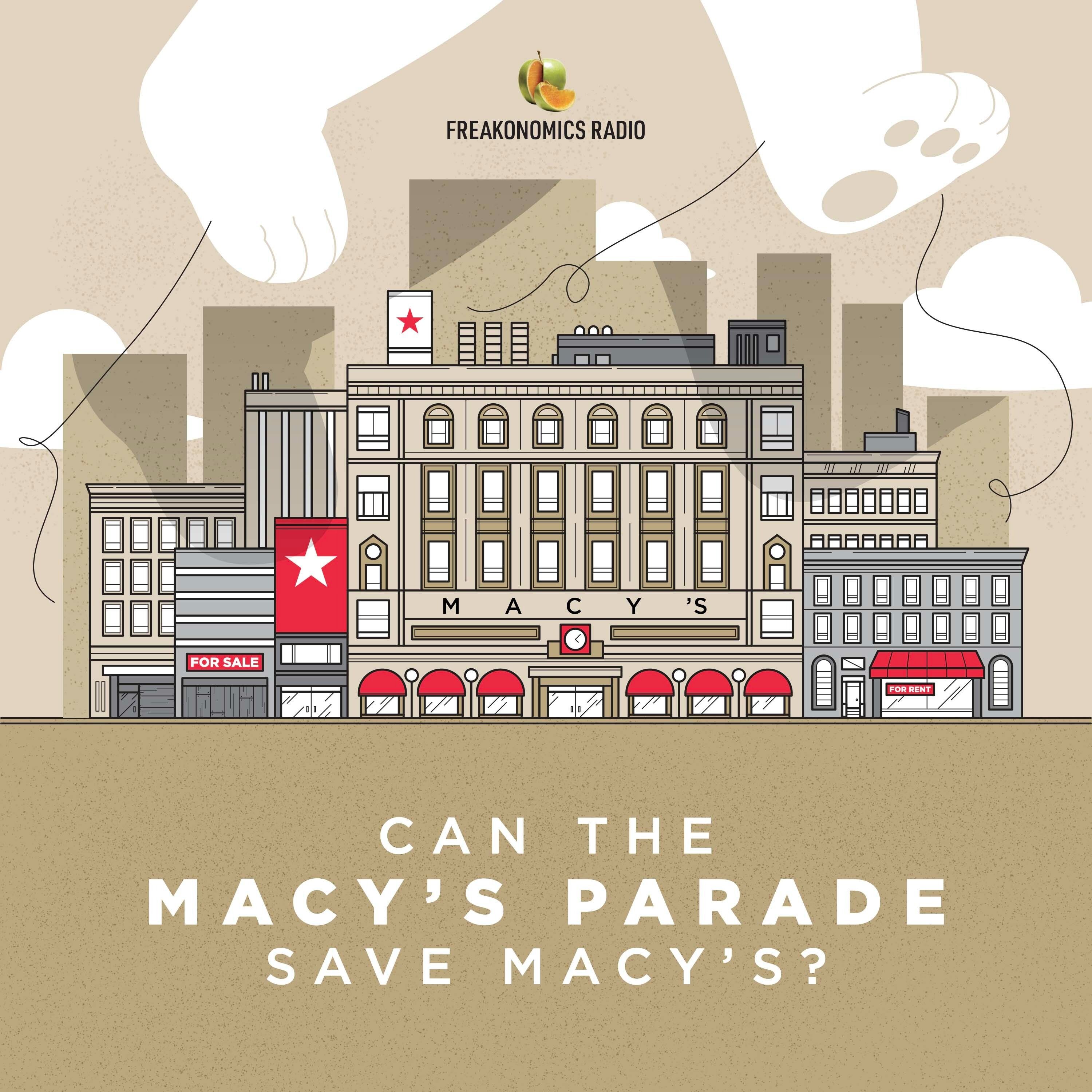
Dying Is Easy. Retail Is Hard. (Update)
Macy’s wants to recapture its glorious past. The author of the Wimpy Kid books wants to rebuild his dilapidated hometown. We just want to listen in. (Part two of a two-part series, first published in...

Is Macy’s Thanksgiving Parade Its Most Valuable Asset? (Update)
The iconic department store calls the parade its “gift to the nation.” With 30 million TV viewers, it’s also a big moneymaker — at least we think it is: when it comes to parade economics, Macy’s is...

654. Is the Public Ready for Private Equity?
A Trump executive order is giving retail investors more access to private markets. Is that a golden opportunity — or fool’s gold?
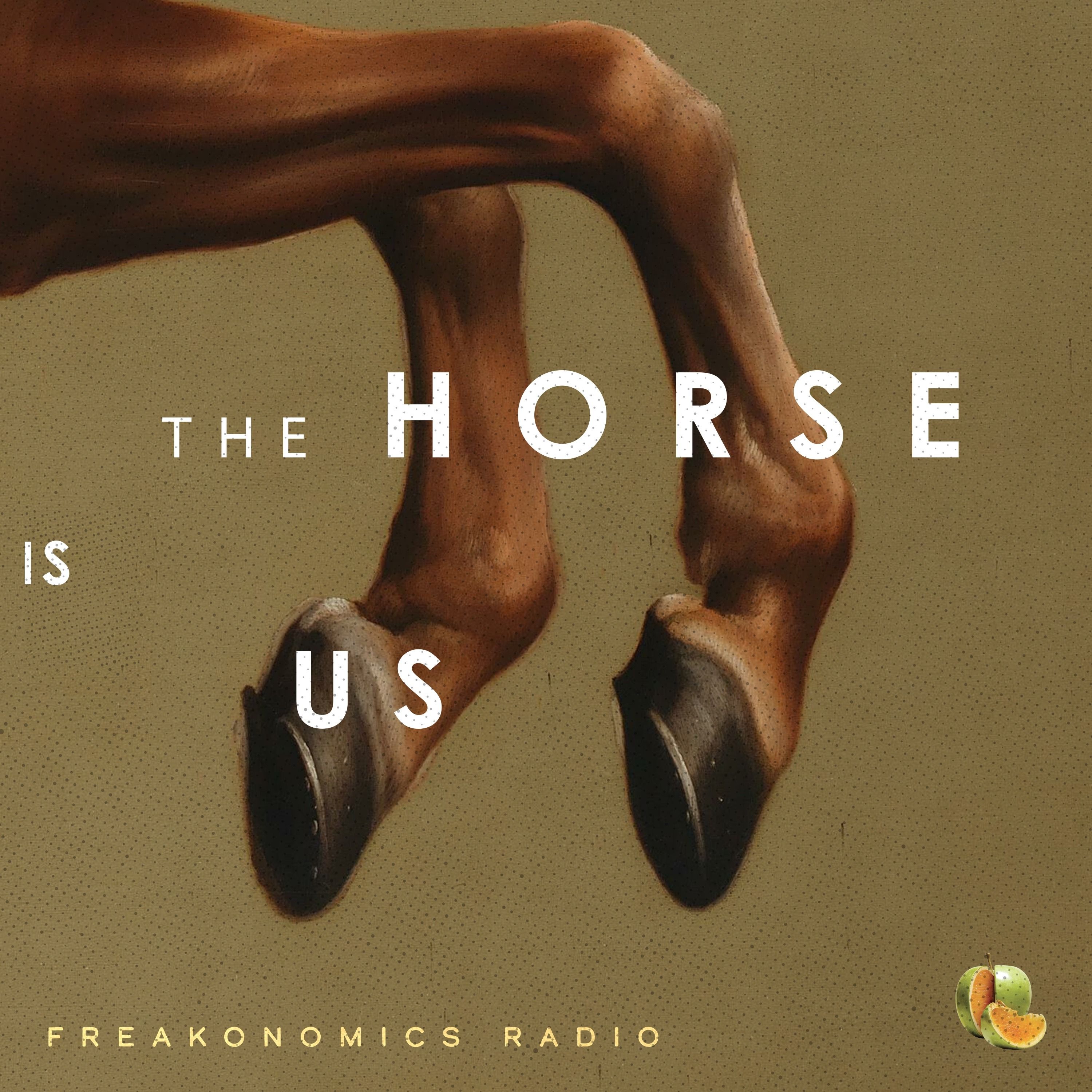
653. Does Horse Racing Have a Future?
Thoroughbred auction prices keep setting records. But tracks are closing, gambling revenues are falling, and the sport is increasingly reliant on subsidies. Is that the kind of long shot anybody...

What Happens When You Turn 20
The world has changed a good bit since "Freakonomics" was first published. In this live anniversary episode, Stephen Dubner tells Geoff Bennett of "PBS NewsHour" everything he has learned since then....

652. Inside the Horse-Industrial Complex
How does Kentucky keep itself atop the thoroughbred industry? Is a champion stallion really worth $200,000 per date? And how many hands can one jockey have? (Part two of a series, “The Horse Is Us.”)
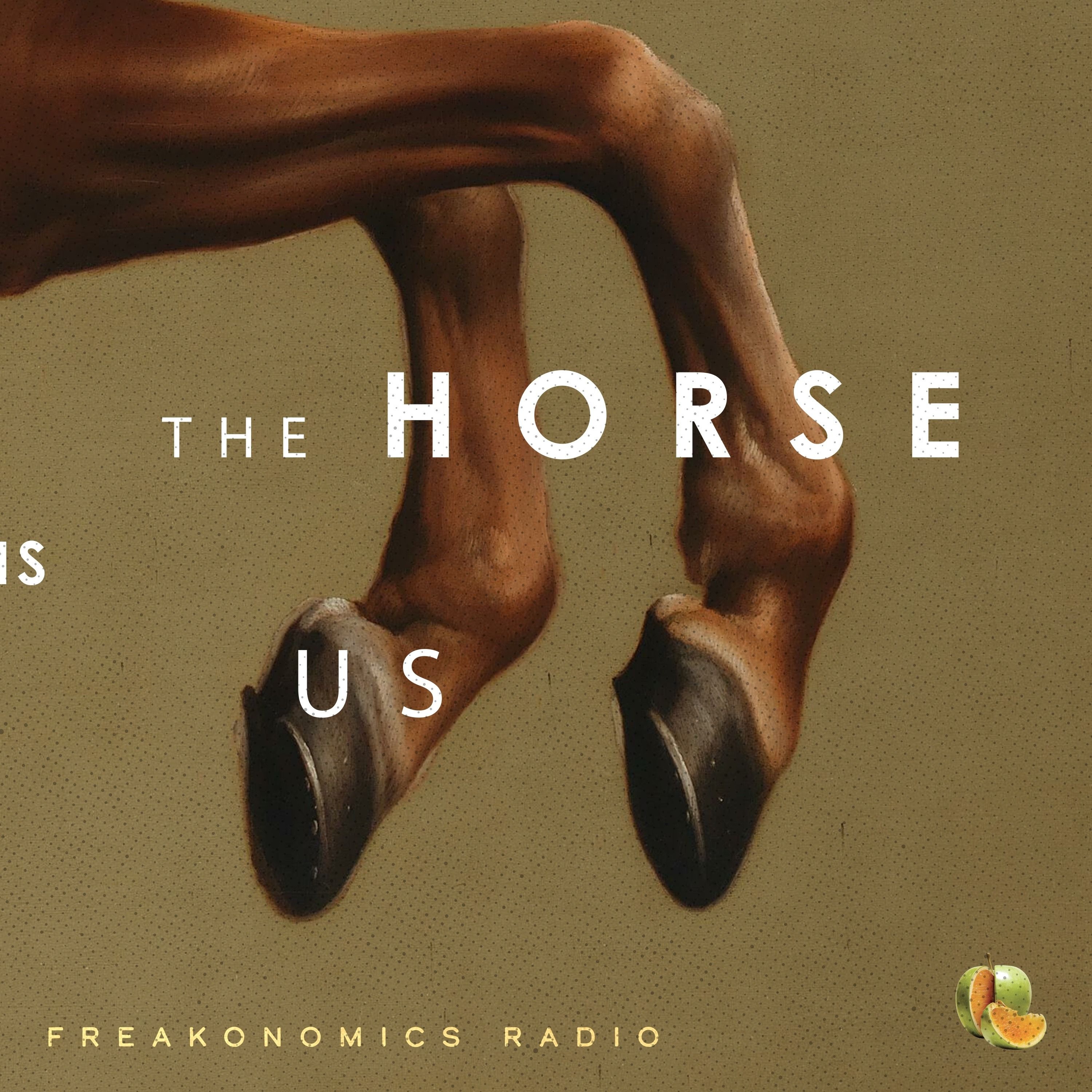
651. The Ultimate Dance Partner
For most of human history, horsepower made the world go. Then came the machines. So why are there still seven million horses in America? (Part one of a series, “The Horse Is Us.”)

Are Two C.E.O.s Better Than One? (Update)
Spotify, Oracle, and Comcast have each recently announced they’re going with co-C.E.O.s. In this 2023 episode, we dig into the research and hear firsthand stories of triumph and disaster. Also:...

650. The Doctor Won’t See You Now
The U.S. has a physician shortage, created in part by a century-old reform that shut down bad medical schools. But why haven’t we filled the gap? Why are some physicians so unhappy? And which is...
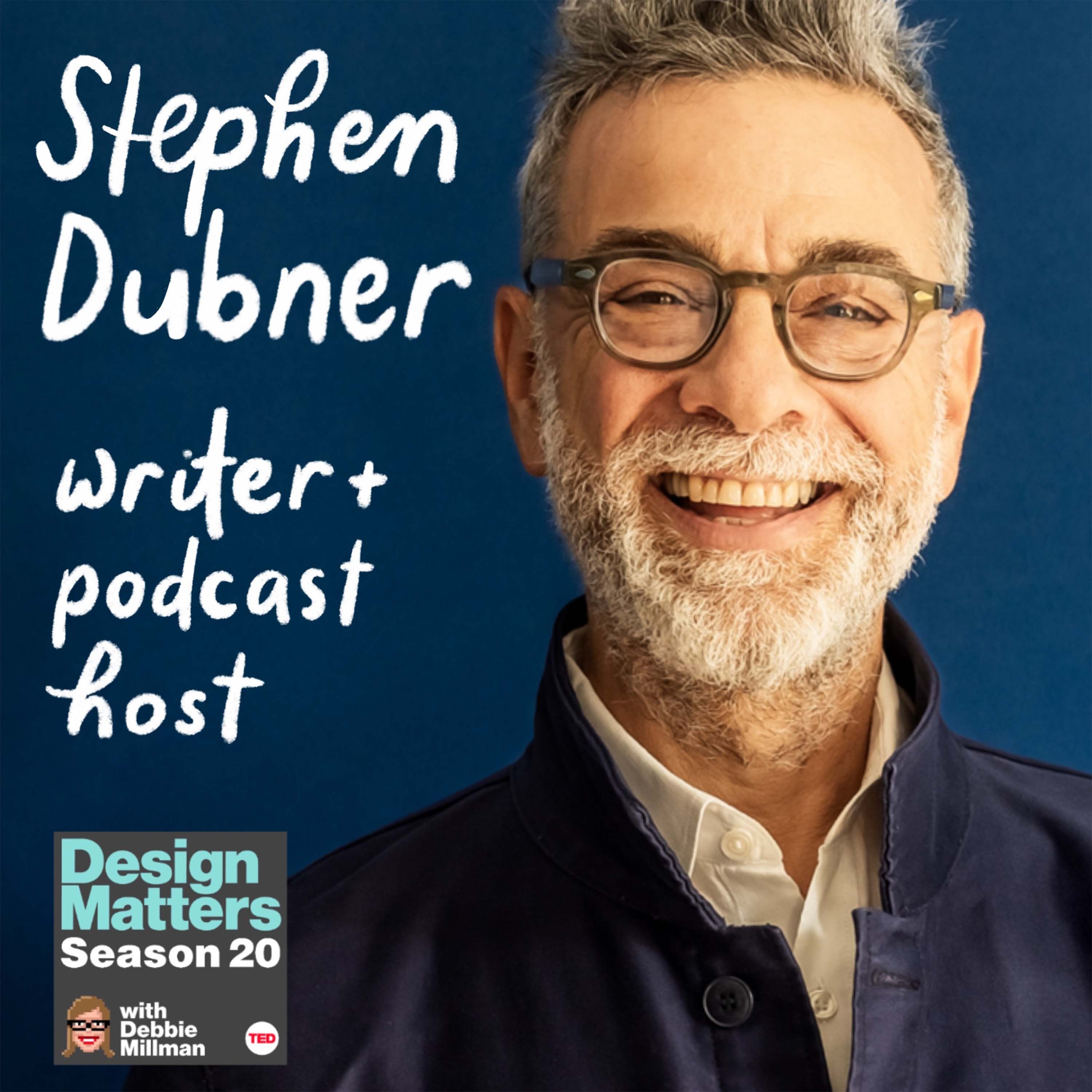
A Question-Asker Becomes a Question-Answerer
For the 20th anniversary of "Freakonomics," Debbie Millman of "Design Matters" interviews Stephen Dubner about his upbringing, his writing career, and why it's important to “swing your swing.” Plus: a...

How Can We Break Our Addiction to Contempt? (Update)
Arthur Brooks, an economist and former head of the American Enterprise Institute, believes that there is only one remedy for our political polarization: love. In this 2021 episode, we ask if Brooks is...

649. Should Ohio State (and Michigan, and Clemson) Join the N.F.L.?
Soccer leagues around the world use a promotion-and-relegation system to reward the best teams and punish the worst. We ask whether American sports fans would enjoy a similar system. (Part two of a...

648. The Merger You Never Knew You Wanted
The N.F.L. is a powerful cartel with imperial desires. College football is about to undergo a financial reckoning. So maybe they should team up? (Part one of a two-part series.)

Is the U.S. Really Less Corrupt Than China? (Update)
In this episode we first published in 2021, the political scientist Yuen Yuen Ang argues that different forms of government create different styles of corruption — and that the U.S. and China have...

647. China Is Run by Engineers. America Is Run by Lawyers.
In his new book “Breakneck,” Dan Wang argues that the U.S. has a lot to learn from China. He also says that “no two peoples are more alike.” We have questions.

Is the World Ready for a Guaranteed Basic Income? (Update)
A lot of jobs in the modern economy don’t pay a living wage, and some of those jobs may be wiped out by new technologies. So what’s to be done? We revisit an episode from 2016 for a potential...

646. An Air Traffic Controller Walks Into a Radio Studio ...
What does it take to “play 3D chess at 250 miles an hour”? And how far will $12.5 billion of “Big, Beautiful” funding go toward modernizing the F.A.A.? (Part two of a two-part series.)

645. Is the Air Traffic Control System Broken?
Flying in the U.S. is still exceptionally safe, but the system relies on outdated tech and is under tremendous strain. Six experts tell us how it got this way and how it can (maybe) be fixed. (Part...

644. Has America Lost Its Appetite for the Common Good?
Patrick Deneen, a political philosopher at Notre Dame, says yes. He was a Democrat for years, and has now come to be seen as an “ideological guru” of the Trump administration. But that only tells half...
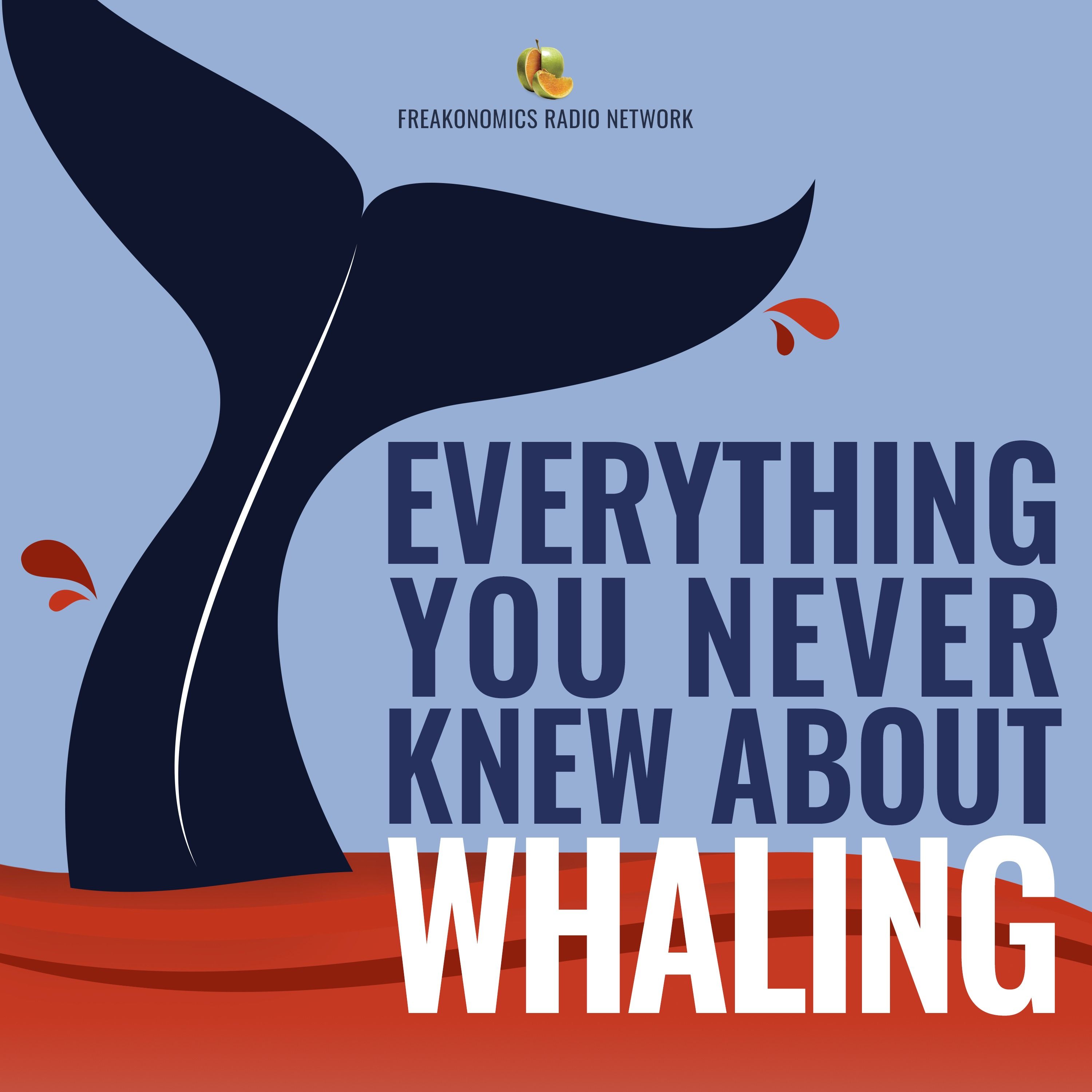
Extra: A Modern Whaler Speaks Up (Update)
Bjørn Andersen has killed hundreds of minke whales. He tells us how he does it, why he does it, and what he thinks would happen if whale-hunting ever stopped. (This bonus episode is a follow-up to our...

What Can Whales Teach Us About Clean Energy, Workplace Harmony, and Living the Good Life? (Update)
In the final episode of our whale series, we learn about fecal plumes, shipping noise, and why "Moby-Dick" is still worth reading. (Part 3 of "Everything You Never Knew About Whaling.")

Why Do People Still Hunt Whales? (Update)
For years, whale oil was used as lighting fuel, industrial lubricant, and the main ingredient in (yum!) margarine. Whale meat was also on a few menus. But today, demand for whale products is at a...

The First Great American Industry (Update)
Whaling was, in the words of one scholar, “early capitalism unleashed on the high seas.” How did the U.S. come to dominate the whale market? Why did whale hunting die out here — and continue to grow...

Why Does Tipping Still Exist? (Update)
It’s a haphazard way of paying workers, and yet it keeps expanding. With federal tax policy shifting in a pro-tip direction, we revisit an episode from 2019 to find out why.

643. Why Do Candles Still Exist?
They should have died out when the lightbulb was invented. Instead they’re a $10 billion industry. What does it mean that we still want tiny fires inside our homes?

642. How to Wage Peace, According to Tony Blinken
The former secretary of state isn’t a flamethrower, but he certainly has strong opinions. In this wide-ranging conversation with Stephen Dubner, he gives them all: on Israel, Gaza, China, Iran,...

Why Does One Tiny State Set the Rules for Everyone? (Update)
Until recently, Delaware was almost universally agreed to be the best place for companies to incorporate. Now, with Elon Musk leading a corporate stampede out of the First State, we revisit an episode...

641. What Does It Cost to Lead a Creative Life?
For years, the playwright David Adjmi was considered “polarizing and difficult.” But creating "Stereophonic" seems to have healed him. Stephen Dubner gets the story — and sorts out what Adjmi has in...

640. Why Governments Are Betting Big on Sports
The Gulf States and China are spending billions to build stadiums and buy up teams — but what are they really buying? And can an entrepreneur from Cincinnati make his own billions by bringing baseball...

How to Make Your Own Luck (Update)
Before she decided to become a poker pro, Maria Konnikova didn’t know how many cards are in a deck. But she did have a Ph.D. in psychology, a brilliant coach, and a burning desire to know whether life...

639. “This Country Kicks My Ass All the Time”
Cory Booker on the politics of fear, the politics of hope, and how to split the difference.

638. Are You Ready for the Elder Swell?
In the U.S., there will soon be more people over 65 than there are under 18 — and it’s not just lifespan that’s improving, it’s “healthspan” too. Unfortunately, the American approach to aging is stuck...

What Do Medieval Nuns and Bo Jackson Have in Common? (Update)
In this episode from 2013, we look at whether spite pays — and if it even exists.

637. What It’s Like to Be Middle-Aged (in the Middle Ages)
The simplicity of life back then is appealing today, as long as you don’t mind Church hegemony, the occasional plague, trial by gossip — and the lack of ibuprofen. (Part two of a three-part series,...

636. Why Aren’t We Having More Babies?
For decades, the great fear was overpopulation. Now it’s the opposite. How did this happen — and what’s being done about it? (Part one of a three-part series, “Cradle to Grave.”)

An Economics Lesson from a Talking Pencil (Update)
A famous essay argues that “not a single person on the face of this earth” knows how to make a pencil. How true is that? In this 2016 episode, we looked at what pencil-making can teach us about...

635. Can a Museum Be the Conscience of a Nation?
Nicholas Cullinan, the new director of the British Museum, seems to think so. “I'm not afraid of the past,” he says — which means talking about looted objects, the basement storerooms, and the leaking...

634. “Fault-Finder Is a Minimum-Wage Job”
Austan Goolsbee, president of the Federal Reserve Bank of Chicago, is less reserved than the average banker. He explains why vibes are overrated, why the Fed’s independence is non-negotiable, and why...

633. The Most Powerful People You’ve Never Heard Of
Just beneath the surface of the global economy, there is a hidden layer of dealmakers for whom war, chaos, and sanctions can be a great business opportunity. Javier Blas and Jack Farchy, the authors...

How to Succeed at Failing, Part 4: Extreme Resiliency (Update)
Everyone makes mistakes. How do we learn from them? Lessons from the classroom, the Air Force, and the world’s deadliest infectious disease. (Part four of a four-part series.)

How to Succeed at Failing, Part 3: Grit vs. Quit (Update)
Giving up can be painful. That's why we need to talk about it. Today: stories about glitchy apps, leaky paint cans, broken sculptures — and a quest for the perfect bowl of ramen. (Part three of a...

How to Succeed at Failing, Part 2: Life and Death (Update)
In medicine, failure can be catastrophic. It can also produce discoveries that save millions of lives. Tales from the front line, the lab, and the I.T. department. (Part two of a four-part series.)

How to Succeed at Failing, Part 1: The Chain of Events (Update)
We tend to think of tragedies as a single terrible moment, rather than the result of multiple bad decisions. Can this pattern be reversed? We try — with stories about wildfires, school shootings, and...

632. When Did We All Start Watching Documentaries?
It used to be that making documentary films meant taking a vow of poverty (and obscurity). The streaming revolution changed that. Award-winning filmmaker R.J. Cutler talks to Stephen Dubner about...

631. Will "3 Summers of Lincoln" Make It to Broadway?
It’s been in development for five years and has at least a year to go. On the eve of its out-of-town debut, the actor playing Lincoln quit. And the producers still need to raise another $15 million to...

Is It a Theater Piece or a Psychological Experiment? (Update)
In an episode from 2012, we looked at what "Sleep No More" and the Stanford Prison Experiment can tell us about who we really are.

630. On Broadway, Nobody Knows Nothing
A hit like "Hamilton" can come from nowhere while a sure bet can lose $20 million in a flash. We speak with some of the biggest producers in the game — Sonia Friedman, Jeffrey Seller, Hal Luftig — and...

629. How Is Live Theater Still Alive?
It has become fiendishly expensive to produce, and has more competition than ever. And yet the believers still believe. Why? And does the world really want a new musical about ... Abraham Lincoln?!...

Policymaking Is Not a Science — Yet (Update)
Why do so many promising solutions in education, medicine, and criminal justice fail to scale up into great policy? And can a new breed of “implementation scientists” crack the code?

628. Sludge, Part 2: Is Government the Problem, or the Solution?
There is no sludgier place in America than Washington, D.C. But there are signs of a change. We’ll hear about this progress — and ask where Elon Musk and DOGE fit in. (Part two of a two-part series.)

627. Sludge, Part 1: The World Is Drowning in It
Insurance forms that make no sense. Subscriptions that can’t be cancelled. A never-ending blizzard of automated notifications. Where does all this sludge come from — and how much is it costing us?...

Should America Be Run by … Trader Joe’s? (Update)
The quirky little grocery chain with California roots and German ownership has a lot to teach all of us about choice architecture, efficiency, frugality, collaboration, and team spirit.

626. Ten Myths About the U.S. Tax System
Nearly everything that politicians say about taxes is at least half a lie. They are also dishonest when it comes to the national debt. Stephen Dubner finds one of the few people in Washington who is...

625. The Biden Policy That Trump Hasn’t Touched
Lina Khan, the youngest F.T.C. chair in history, reset U.S. antitrust policy by thwarting mega-mergers and other monopolistic behavior. This earned her enemies in some places, and big fans in others —...

EXTRA: The Downside of Disgust (Update)
It’s a powerful biological response that has preserved our species for millennia. But now it may be keeping us from pursuing strategies that would improve the environment, the economy, even our own...

624. The Animal No One Loves, Until They Do
To most people, the rat is vile and villainous. But not to everyone! We hear from a scientist who befriended rats and another who worked with them in the lab — and from the animator who made one the...

623. Can New York City Win Its War on Rats?
Even with a new rat czar, an arsenal of poisons, and a fleet of new garbage trucks, it won’t be easy — because, at root, the enemy is us. (Part two of a three-part series, “Sympathy for the Rat.”)

The Show That Never Happened
A brief meditation on loss, relativity, and the vagaries of show business.

622. Why Does Everyone Hate Rats?
New York City’s mayor calls them “public enemy number one.” History books say they caused the Black Death — although recent scientific evidence disputes that claim. So is the rat a scapegoat? And what...

621. Is Professional Licensing a Racket?
Licensing began with medicine and law; now it extends to 20 percent of the U.S. workforce, including hair stylists and auctioneers. In a new book, the legal scholar Rebecca Allensworth calls licensing...

When Is a Superstar Just Another Employee? (Update)
In 2023, the N.F.L. players’ union conducted a workplace survey that revealed clogged showers, rats in the locker room — and some insights for those of us who don’t play football. Today we’re updating...

620. Why Don’t Running Backs Get Paid Anymore?
They used to be the N.F.L.’s biggest stars, with paychecks to match. Now their salaries are near the bottom, and their careers are shorter than ever. We speak with an analytics guru, an agent, some...

619. How to Poison the A.I. Machine
When the computer scientist Ben Zhao learned that artists were having their work stolen by A.I. models, he invented a tool to thwart the machines. He also knows how to foil an eavesdropping Alexa and...

Is San Francisco a Failed State? (And Other Questions You Shouldn’t Ask the Mayor)
Stephen Dubner, live on stage, mixes it up with outbound mayor London Breed, and asks economists whether A.I. can be “human-centered” and if Tang is a gateway drug.

618. Are Realtors Having an Existential Crisis?
Their trade organization just lost a huge lawsuit. Their infamous commission model is under attack. And there are way too many of them. If they go the way of travel agents, will we miss them when...

617. Are You Really Allergic to Penicillin?
Like tens of millions of people, Stephen Dubner thought he had a penicillin allergy. Like the vast majority, he didn’t. This misdiagnosis costs billions of dollars and causes serious health problems,...

Highway Signs and Prison Labor
Incarcerated people grow crops, fight wildfires, and manufacture everything from prescription glasses to highway signs — often for pennies an hour. Zachary Crockett takes the next exit, in this...

Can Academic Fraud Be Stopped? (Update)
Probably not — the incentives are too strong. But a few reformers are trying. We check in on their progress, in an update to an episode originally published last year. (Part 2 of 2)

Why Is There So Much Fraud in Academia? (Update)
Some of the biggest names in behavioral science stand accused of faking their results. Last year, an astonishing 10,000 research papers were retracted. In a series originally published in early 2024,...

Your Brain Doesn’t Work the Way You Think
David Eagleman upends myths and describes the vast possibilities of a brainscape that even neuroscientists are only beginning to understand. Steve Levitt interviews him in this special episode of...

616. How to Make Something from Nothing
Adam Moss was the best magazine editor of his generation. When he retired, he took up painting. But he wasn’t very good, and that made him sad. So he wrote a book about how creative people work— and,...

615. Is Ozempic as Magical as It Sounds?
In a wide-ranging conversation with Ezekiel Emanuel, the policymaking physician and medical gadfly, we discuss the massive effects of GLP-1 drugs like Ozempic, Wegovy, and Mounjaro. We also talk about...

How the Supermarket Helped America Win the Cold War (Update)
Last week, we heard a former U.S. ambassador describe Russia’s escalating conflict with the U.S. Today, we revisit a 2019 episode about an overlooked front in the Cold War — a “farms race” that,...

614. Is the U.S. Sleeping on Threats from Russia and China?
John J. Sullivan, a former State Department official and U.S. ambassador, says yes: “Our politicians aren’t leading — Republicans or Democrats.” He gives a firsthand account of a fateful Biden-Putin...

613. Dying Is Easy. Retail Is Hard.
Macy’s wants to recapture its glorious past. The author of the Wimpy Kid books wants to rebuild his dilapidated hometown. We just want to listen in. (Part two of a two-part series.)

612. Is Macy’s Thanksgiving Parade Its Most Valuable Asset?
The 166-year-old chain, which is fighting extinction, calls the parade its “gift to the nation.” With 30 million TV viewers, it’s also a big moneymaker. At least we think it is — Macy’s is famously...

How to Stop Worrying and Love the Robot Apocalypse (Update)
It’s true that robots (and other smart technologies) will kill many jobs. It may also be true that newer collaborative robots (“cobots”) will totally reinvigorate how work gets done. That, at least,...

611. Fareed Zakaria on What Just Happened, and What Comes Next
After a dramatic election, Donald Trump has returned from exile. We hear what to expect at home and abroad — and what to do if you didn’t vote for Trump.

610. Who Wins and Who Loses Once the U.S. Legalizes Weed?
Some people want the new cannabis economy to look like the craft-beer movement. Others are hoping to build the Amazon of pot. And one expert would prefer a government-run monopoly. We listen in as...

609. What Does It Take to Run a Cannabis Farm?
Chris Weld worked for years in emergency rooms, then ditched that career and bought an old farm in Massachusetts. He set up a distillery and started making prize-winning spirits. When cannabis was...

Abortion and Crime, Revisited (Update)
With abortion on the Nov. 5 ballot, we look back at Steve Levitt’s controversial research about an unintended consequence of Roe v. Wade.

608. Cannabis Is Booming, So Why Isn’t Anyone Getting Rich?
There are a lot of reasons, including heavy regulations, high taxes, and competition from illegal weed shops. Most operators are losing money and waiting for Washington to get out of the way. In the...

607. Is America Switching From Booze to Weed?
We have always been a nation of drinkers — but now there are more daily users of cannabis than alcohol. Considering alcohol’s harms, maybe that’s a good thing. But some people worry that the...

606. How to Predict the Presidency
Are betting markets more accurate than polls? What kind of chaos would a second Trump term bring? And is U.S. democracy really in danger, or just “sputtering on”? (Part two of a two-part series.)

Has the U.S. Presidency Become a Dictatorship? (Update)
Sure, we all pay lip service to the Madisonian system of checks and balances. But presidents have been steadily expanding the reach of the job. With an election around the corner, we updated our 2016...

605. What Do People Do All Day?
Sixty percent of the jobs that Americans do today didn’t exist in 1940. What happens as our labor becomes more technical and less physical? And what kinds of jobs will exist in the future?

EXTRA: Roland Fryer Refuses to Lie to Black America (Update)
His research on police brutality and school incentives won him acclaim, but also enemies. He was suspended for two years by Harvard, during which time he took a hard look at corporate diversity...

604. Did the N.F.L. Solve Diversity Hiring? (Part 2)
What happened when the Rooney Rule made its way from pro football to corporate America? Some progress, some backsliding, and a lot of controversy. (Second in a two-part series.)

603. Did the N.F.L. Solve Diversity Hiring? (Part 1)
The biggest sports league in history had a problem: While most of its players were Black, almost none of its head coaches were. So the N.F.L. launched a hiring policy called the Rooney Rule. In the...

EXTRA: In Praise of Maintenance (Update)
We revisit an episode from 2016 that asks: Has our culture’s obsession with innovation led us to neglect the fact that things also need to be taken care of?

602. Is Screen Time as Poisonous as We Think?
Young people have been reporting a sharp rise in anxiety and depression. This maps neatly onto the global rise of the smartphone. Some researchers are convinced that one is causing the other. But how...

601. Multitasking Doesn’t Work. So Why Do We Keep Trying?
Only a tiny number of “supertaskers” are capable of doing two things at once. The rest of us are just making ourselves miserable, and less productive. How can we put the — hang on a second, I've just...

What Is the Future of College — and Does It Have Room for Men? (Update)
Educators and economists tell us all the reasons college enrollment has been dropping, especially for men, and how to stop the bleeding. (Part 3 of our series from 2022, “Freakonomics Radio Goes Back...

EXTRA: Why Quitting Is Usually Worth It
Stephen Dubner appears as a guest on "Fail Better," a new podcast hosted by David Duchovny. The two of them trade stories about failure, and ponder the lessons that success could never teach.

The University of Impossible-to-Get-Into (Update)
America’s top colleges are facing record demand. So why don’t they increase supply? (Part 2 of our series from 2022, “Freakonomics Radio Goes Back to School.”)

What Exactly Is College For? (Update)
We think of them as intellectual enclaves and the surest route to a better life. But U.S. colleges also operate like firms, trying to differentiate their products to win market share and prestige...

EXTRA: Here’s Why You’re Not an Elite Athlete (Update)
There are a lot of factors that go into greatness, many of which are not obvious. As the Olympics come to a close, we revisit a 2018 episode in which top athletes from a variety of sports tell us how...

600. “If We’re All in It for Ourselves, Who Are We?”
Tania Tetlow, a former federal prosecutor and now the president of Fordham University, thinks the modern campus could use a dose of old-fashioned values.

599. The World's Most Valuable Unused Resource
It’s not oil or water or plutonium — it’s human hours. We've got an idea for putting them to use, and for building a more human-centered economy. But we need your help.

EXTRA: Why Rent Control Doesn’t Work (Update)
A new proposal from the Biden administration calls for a nationwide cap on rent increases. Economists think that’s a terrible idea. We revisit a 2019 episode to hear why.
About this Podcast
Copyright
2024 Dubner Productions and Stitcher
Language
en-us